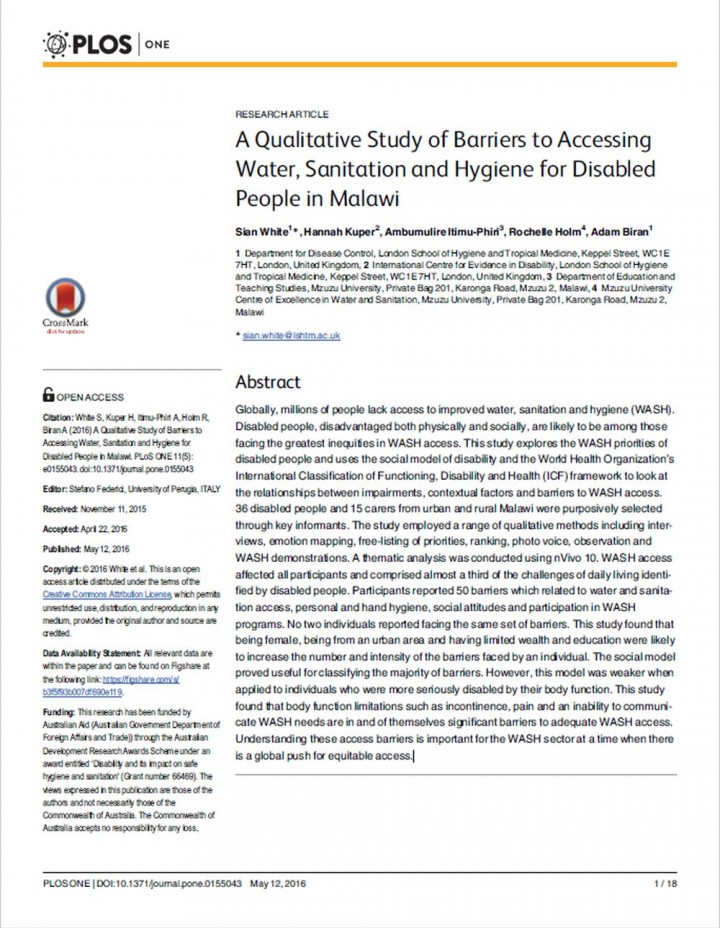A Qualitative Study of Barriers to Accessing Water, Sanitation and Hygiene for Disabled People in Malawi
White, S., et al. (2016)

Published in: 2016
Publisher:
London School of Hygiene and Tropical Medicine
Author:
White, S., et al.
Uploaded by:
SuSanA Admin
Partner profile:
common upload
3983 Views
51 Downloads
Location of library entry
Globally, millions of people lack access to improved water, sanitation and hygiene (WASH). Disabled people, disadvantaged both physically and socially, are likely to be among those facing the greatest inequities in WASH access. This study explores the WASH priorities of disabled people and uses the social model of disability and the World Health Organization’s International Classification of Functioning, Disability and Health (ICF) framework to look at the relationships between impairments, contextual factors and barriers to WASH access. 36 disabled people and 15 carers from urban and rural Malawi were purposively selected through key informants. The study employed a range of qualitative methods including interviews, emotion mapping, free-listing of priorities, ranking, photo voice, observation and WASH demonstrations. A thematic analysis was conducted using nVivo 10. WASH access affected all participants and comprised almost a third of the challenges of daily living identified by disabled people. Participants reported 50 barriers which related to water and sanitation access, personal and hand hygiene, social attitudes and participation in WASH programs. No two individuals reported facing the same set of barriers. This study found that being female, being from an urban area and having limited wealth and education were likely to increase the number and intensity of the barriers faced by an individual. The social model proved useful for classifying the majority of barriers. However, this model was weaker when applied to individuals who were more seriously disabled by their body function. This study found that body function limitations such as incontinence, pain and an inability to communicate WASH needs are in and of themselves significant barriers to adequate WASH access. Understanding these access barriers is important for the WASH sector at a time when there is a global push for equitable access.
Bibliographic information
White, S., et al. (2016). A Qualitative Study of Barriers to Accessing Water, Sanitation and Hygiene for Disabled People in Malawi. London School of Hygiene and Tropical Medicine
Filter tags
English Gender equality Intersectionality Sub-Saharan Africa














